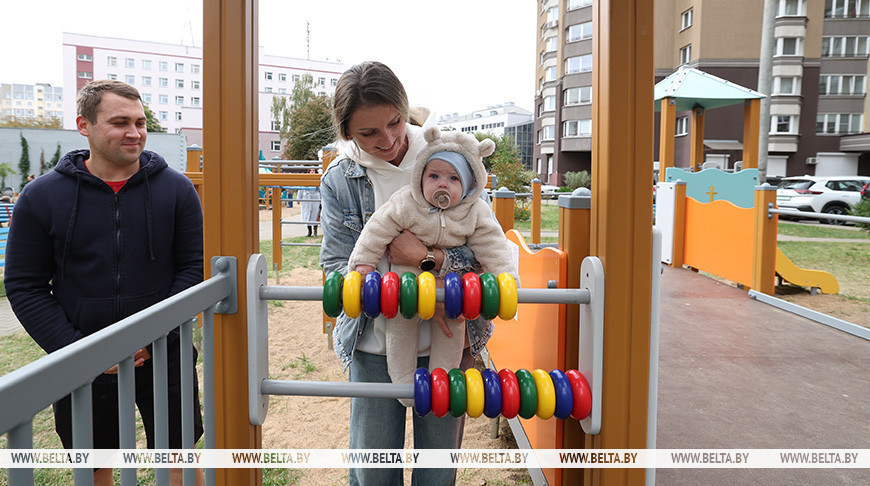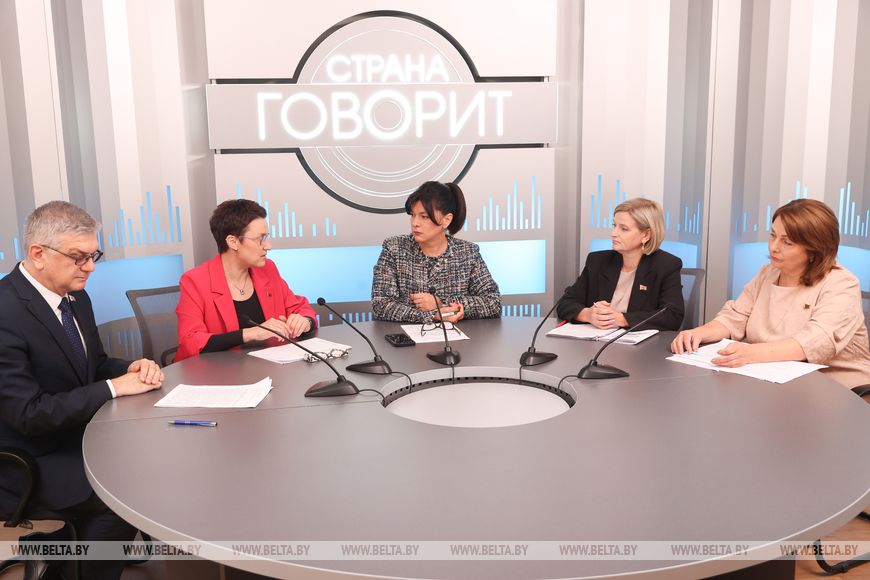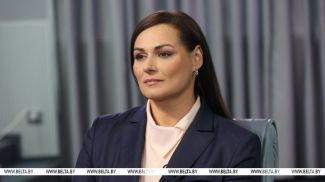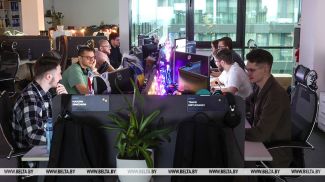
MINSK, 10 October (BelTA) - Svetlana Belash, Head of the Department of Population, Gender and Family Policy at the Labor and Social Security Ministry, spoke about the main measures to support families with children in Belarus In a new episode of BelTA’s Nation Speaks project.
The representative of the Labor and Social Security Ministry emphasized that the main support measures for families with children are in place at both the national and regional levels. “Among the key measures is financial support – a system of state benefits, with 11 types of payments in total. These include payments at the birth of a child, monthly payments, support for families with children over three who need it for objective reasons, maternity leave benefits, and paid sick leave when a child, the mother, or another caregiver is ill. Next are the guarantees of the Labor Code. This covers both paid annual leave and employment safeguards. For example, it is unlawful to refuse a job contract to a woman caring for a child under three or who is expecting. An employee's contract must also be extended until the child reaches age five, provided the parent agrees. Other key elements are social leave, paid time-off, and the growing availability of remote work, including hybrid models,” said Svetlana Belash.
Benefits are also provided in the healthcare sector. “There is free provision of medicines for children under three, free and subsidised provision of medicines for children with disabilities under 18, and other measures. “We must not forget about education, starting with the state subsidization of a child's place in a pre-school institution. After all, parents only pay for meals during the period their child attends kindergarten; everything else is subsidized by the state. The parental fee constitutes a mere 13-15% of the total cost of a child's place in the kindergarten,” the representative of the Labor and Social Security Ministry said. She added that for families with two children the kindergarten fee is even lower; for large families, it is reduced by 50%, and if a child with a disability attends the kindergarten, the parents are fully exempt from the payment.

Speaking about school meals, Svetlana Belash stated that primary school students have free meals. Older children from low-income, large families, and other categories also receive free meals at school. “We must also remember the vouchers, including those for children's recreational camps, which are subsidized by the state. This demonstrates that the support system is comprehensive and built across all fronts. It is not a random set of measures, but a defined set of guarantees for every aspect of family life,” emphasized the head of the department.
According to her, all national support measures for families with children are supplemented by regional ones. Each region has its own initiatives. For example, there are various awards established to encourage motherhood, and additional payments have been introduced to support certain categories of families.
Benefits are also provided in the healthcare sector. “There is free provision of medicines for children under three, free and subsidised provision of medicines for children with disabilities under 18, and other measures. “We must not forget about education, starting with the state subsidization of a child's place in a pre-school institution. After all, parents only pay for meals during the period their child attends kindergarten; everything else is subsidized by the state. The parental fee constitutes a mere 13-15% of the total cost of a child's place in the kindergarten,” the representative of the Labor and Social Security Ministry said. She added that for families with two children the kindergarten fee is even lower; for large families, it is reduced by 50%, and if a child with a disability attends the kindergarten, the parents are fully exempt from the payment.
Speaking about school meals, Svetlana Belash stated that primary school students have free meals. Older children from low-income, large families, and other categories also receive free meals at school. “We must also remember the vouchers, including those for children's recreational camps, which are subsidized by the state. This demonstrates that the support system is comprehensive and built across all fronts. It is not a random set of measures, but a defined set of guarantees for every aspect of family life,” emphasized the head of the department.
According to her, all national support measures for families with children are supplemented by regional ones. Each region has its own initiatives. For example, there are various awards established to encourage motherhood, and additional payments have been introduced to support certain categories of families.













